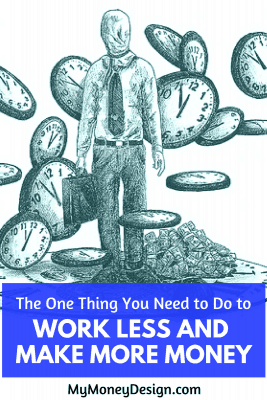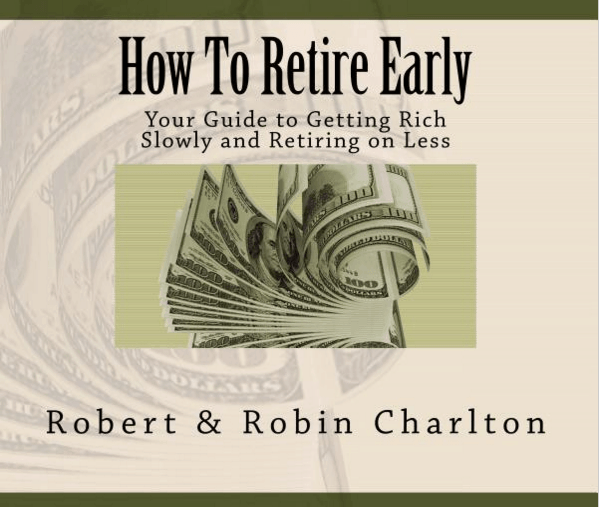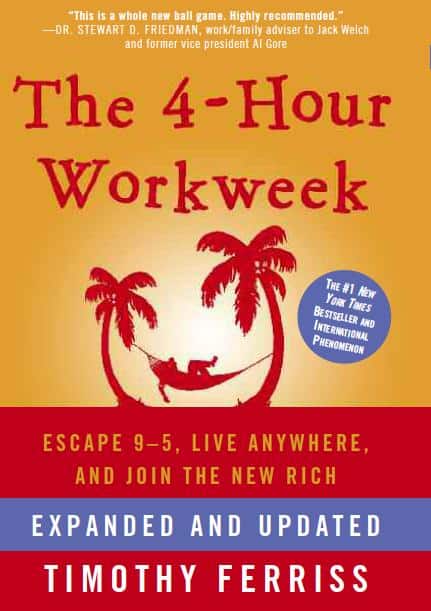And why not. The U.S. is one of the most over-worked developed countries in the world. Our mantra for generations has been to simply put more hours in when we want a bigger paycheck.
Yet … we all know there are outliers. I’m sure you can think of one. Everyone has that one guy or girl in the office that seems to never be there or be very busy. But then they (appear to) make way more money than the rest of us.
Maybe you know of a friend or family member that works fewer hours than you do, but they seem to be doing very well financially.
Are we jealous? Of course! Who wouldn’t want to have to do less and earn more?
With more money and more time to do what you really wanted to, you could spend more time with your loved ones and friends, do your hobbies, play golf, travel, etc. Some days just about anything sounds better than having to go to a cubicle, fill out useless reports, respond to emails, go to meetings, or whatever other things you dread when you’re at the office.
So how do we get there? How come some people enjoy this privilege while others don’t?
In this post, we’re going to explore two examples where working less and earning more was achievable. And it was all thanks to just ONE very important thing…
Working More to Work Less
The book is the story of how this man and wife couple (with no kids) was able to retire by their early 40’s after just 15 years of saving!
So how did they do it?
The foundation of their story begins with one profound decision: They wanted to escape working.
Neither of them were necessarily “in love” with what they were doing for careers, and they dreamed of a day when they could travel and live abroad without financial burden.
Their goal wasn’t to work less, but to not have to work at all!
And so like most people on the quest for financial freedom and early retirement, they knew the answer to their problem was simple: They needed to make more money.
Earning more money but keeping the same standard of living expenses meant they would be able to save away more and more money every year for early retirement. That money would compound into a fortune so big that that one day be able to stop working and live off of 4 percent (give or take) of that money each year for the rest of their lives.
And so, ironically, they actually began their journey by “working more”.
Robert plunged himself into his career and began to take on more assignments at work. Eventually he ended up changing jobs, and that led to him earning a higher paid position.
His wife, Robin, also made some pretty significant career changes as well. She was earning a very small amount as a travel agent. Sensing this was an industry that was quickly dying out (and it was by the end of the 1990’s), she went back to school, got a nursing degree, and then started earning 3x more than she was before.
All this time, the two continued to save more and more for retirement each year. They went from saving just a few thousand dollars to over $40,000 annually for the last few years. Those savings quickly snowballed into all the money they would ever need to stop working completely and enjoy their standard of living.
The lesson here: By actually working harder for a few short years, this couple was able to shave almost 20 years off the standard retirement norm!
How’s that for working less and earning more?
Applying the 80/20 Rule
This couple isn’t the only one to have a positive experience with working less and making more money. I had some experience with this myself.
In case you’ve never heard of it, the 80-20 principle is simple: 80% of your results will come from 20% of your efforts. The idea then is to eliminate the 80% of things that are not helping you reach your goals, and redirect your efforts to the 20% that are. By doing so, you’ll stop wasting your time and increase your results.
The more I thought about this, the more I realized just how guilty I was of this. How many things in a day was I doing that didn’t really contribute at all to me being a better professional or earning more?
I began asking myself:
- Do I really need to respond to every single email right away?
- Do I really need to be involved in every decision or project?
- Do I really need to follow up on every single quote?
- Do I really have to solve every single problem?
- Do I really have to know everything about everything?
Of course not!
Instead, I began to lean out from the mundane and focus on my efforts on the things that actually mattered; the things that actually produced results!
Before every action, I would ask myself:
How is this going to bring me closer to MY goal?
How will this make me a better at what I want to do? … better as a professional and enhance my career? How will this be better for my company in the long run? How will I ultimately end up benefiting?
In doing so, I found myself moving away from being a jack of all trades and more specialized in niches within my industry that were interesting to me. I was developing a deeper understanding of some pretty complicated subjects, and I was really enjoying the challenge.
By not signing myself up for everything under the sun, I found myself taking home less and less work. I was also starting to really work less than I was before.
Did that hurt me financially?
NO! That year, I got a HUGE bonus check. Then, as if that wasn’t good enough, the following year I got an even bigger profit sharing bonus – the biggest I had ever received in my life!
The lesson learned: Doing more isn’t what gets rewarded. It’s what you know and what you do with it that employers reward.
Plus: Money wasn’t the only reward. By working less, I was instead spending my time where I needed it: with my family, laughing at our favorite shows and simply enjoying their company.
I was finding a better work-life balance. I was taking back what was mine: Time.
And it was paying off: Both mentally as well as financially.
The Key is “Focus”
In both examples, there was one common thing that led to making more money and less work:
Focus.
In the first example, when the Charlton’s decided that an early retirement was something they desperately wanted to achieve within 15 years, it became clear to them what they had to do. They had to focus on earning more money to save more money, even if that meant some pretty dramatic changes to their careers in the short run.
But eventually it paid off! Through disciplined saving and investing, they were able to retire 20 years ahead of when most people typically do. Now they enjoy traveling abroad living in different countries and doing the kinds of things that most people only dream about.
In the second example, once I began to focus on the more actionable aspects of my job and really devote my attention to learning the kinds of things that would enhance me as a professional, my compensation really started to pick up steam fast. This is because employers like it when people produce results; and they value those that can produce the kinds of things that no one else can.
I’m sure there are many more examples that demonstrate that it is possible to work less and make more money. In your own lives, I’d encourage you to find the thing you should be focusing on. Experiment and test to see which things work for your situation. As you keep on chipping away, the answers will slowly reveal themselves, and you’ll discover a pattern that works for your particular situation. It’s there if you’re willing to go find it. Yes, it may even require a bit more work in the short run. But over the long haul, the benefit will pay dividends for life.
Readers – How do you get away with working less and making more money? What’s your secret?
Featured image courtesy of Scott Moore | Flickr





I wish I had one. 🙂 I think prioritizing higher level tasks and delegating lower level tasks will help you achieve this.
Ha! Don’t be so sure. You probably do have a “secret” and just don’t know it. We often trivialize our knowledge as something simple and common place. Yet to everyone else, it’s a secret.
I totally agree on keeping an eye on the top level tasks. This is exactly why its more common for managers and top executives get paid more than the general labor force. There is a higher premium for those who can cultivate long term growth.
Yea it totally makes sense if you work really hard earning more and save a lot you can retire sooner. By building an online presence I am trying to work a lot now, and hopefully selling my site later for a big sum of money. LOL. Back up plan is just to save a lot and keep means low as I focus on multiple goals.
Exactly, although on another topic I’m learning a lot about what it takes to sell a website (more to come in next weeks post). It seems most of us are a long ways off from selling our websites for millions of dollars (unfortunately). Good thing we’ve got backup plans! LOL
I so wish I’d used my 20’s to do what that couple did, but hindsight is always 20/20. When I was a business owner, I tried hard to concentrate on what I did best that made money and delegated the rest, although that can backfire with the wrong employees. Now, my plans include multiple streams of income. Hopefully, the streams will flow enough to support our expenses at some point and we can quit work if we choose.
I’m sure that with enough focus and putting the right infrastructure in place, you’ll have those streams flowing in no time.
Having that financial goal in mind does wonders in getting you to save and invest. Three years ago, I just worked the hours I needed to, threw it all in my savings account, and spent money on stuff I really shouldn’t have. Now that I have an objective and the strategy to achieve it, I’m laser focused on achieving that objective. I go on spending fasts, work a second job, and invest every penny I can.
Well, I’ve had to cease investing recently in order to achieve other financial goals. Planning to hack my living situation, but that costs money. Lots of it.
Focus, however, is a skill I need to learn when it comes to working on a day to day basis.
Sincerely,
ARB–Angry Retail Banker
Your situation was a lot like many people. Until you decide what your objective is, its hard to get motivated to do what you know is good for you. It’s all about finding the path to get there and then taking the steps to do so.
Good post! I agree on setting a firm goal and working towards it. I spent most of my working life earning money, paying bills and saving for a to be determined retirement date. That changed when I turned 54 and decided to retire at 59 1/2. I have been on a journey to replace me working income with passive income and I fully expect to achieve my goal ahead of schedule. This would not have happened if I never set a date and a passive income goal.
Regards,
Deets
Keep it going! I just started reading the blog 1500Days.com and they have a similar goal to retire in 4 years. Although they are going about it a little bit differently, it’s all the same – building a plan and focusing on achieving results!
I’m glad that Brian wrote what he did in response to your question. “I wish I had one,” is my answer too : ) For now, we are working more to earn more money. My teaching summer school and my husband’s taking on all work that comes his way (self-employed) without hiring help – these are the simple things that are making a difference for us. I think that my husband in particular could benefit from a look at that 80/20 rule.
I can’t recommend looking into the 80/20 rule enough. There is a lot of good that can come from putting that philosophy into practice.
The 4HWW changed my life – I’d recommend it to anyone who’s interested in stuff like this! You can get the audio book on Audible, which is what I did. I’ve listened to it like 5 times by now, but the first time was the best (no surprise there I suppose).
Definitely a great read! Surprisingly there is a lot of good life philosophy advice in there that really defies what “normal” is these days.
This is the first time I encounter the 80/20 rule, MMD. And, I think this one can ideally help me reach my goals more easily if done correctly. Thank you for introducing it to me. FOCUS indeed is key!
The 80/20 rule can be a very powerful concept in many, many different areas of study (sales, time management, priorities, business goals, weight loss/health, etc). It’s worth reading into as much as time permits.
I love this: There’s really no getting out of doing the work, but there’s so much benefit to doing as much as you can when you can. We’re “late bloomers” here… In our forties & just bought our first house. We’ spent the past five years working our butts off to become debt-free and saves down-payment, and we’ll pens the next ten or so working to catch up on– and then surpass– our retirement goals.
Starting early would have been great, but we got to it as soon as we knew it was all possible, we will have an earlier and more comfortable retirement than if we hadn’t gotten with the program at all…
Thanks so much for the reminders!
Hi Elizabeth,
Thanks for the comment and welcome to the site. Its sounds like you’ve got the right idea! There’s no going back – no matter what age you are, its never too late to get started. Keep focused and you’ll surely surprise yourself – perhaps even surpass your original goals. I read a lot of retirement blogs and it never ceases to amaze me how quickly a lot of saving and a lot of discipline can add up!